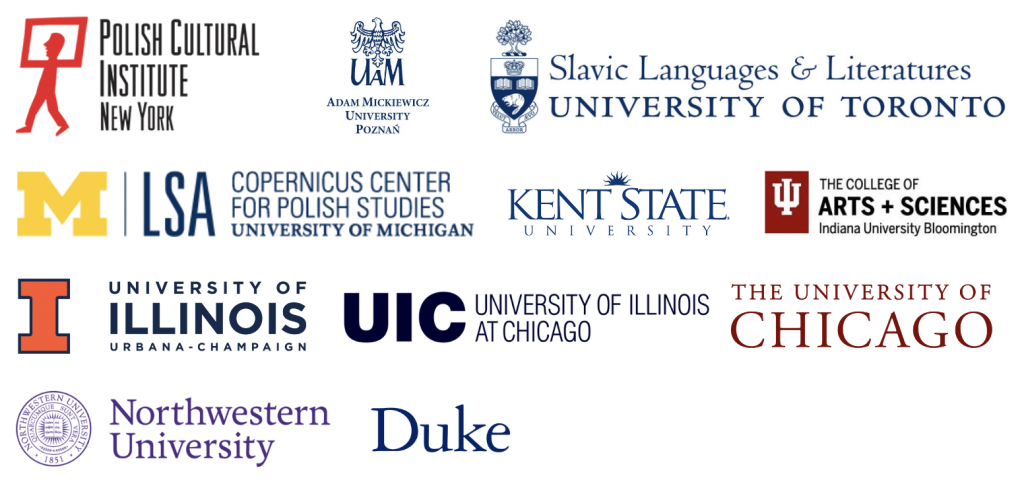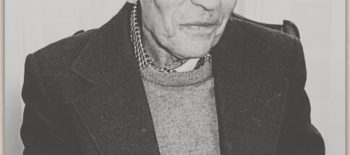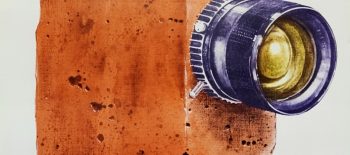February 1, 2022
Watch this episode on out YouTube channel.
Episode 13 and all video recordings are available at:
Polish Cultural Institute New York YouTube
Encounters with Polish Literature is a new video series for anyone interested in literature and the culture of books and reading. Each month, host David A. Goldfarb will present a new topic in conversation with an expert on that author or book or movement in Polish literature. More about the Encounters with Polish Literature series and the timeline.
Wisława Szymborska (1923-2012) spoke to a broad international audience through her poetry that focused on private everyday perception as it unfolded often in interior spaces, revealing an interior space in her mind that her readers could recognize in their own minds.
Szymborska was famously reclusive and enigmatic about her own biography. She was born in Kórnik near Poznań and spent most of her life in Kraków achieving great popularity in print without cultivating an outspoken public persona, keeping to a close circle of friends and giving intimate readings to small audiences by design. Many of her poems are about paintings, particularly works of the Dutch Golden Age by painters like Vermeer whom she appreciated for their reflections on interiority—a girl reading a letter or pouring milk from a jug. She made collages on paper out of words and images from print sources, and also made collage-poems out of fragments of overheard conversation. She was thrust into the public eye when she received the Nobel Prize for Literature in 1996, but maintained her persona as best she could by not taking on the mantle of the national poet as prophet. She used her earnings to create a foundation that gives the annual Wisława Szymborska Award for the best book of poetry from the previous year and provides stipends and residencies for writers.
In this episode we speak with Szymborska’s current main English-language translator, Clare Cavanagh, about what it was like to work with Szymborska, and we look at several of her poems from her earliest work in the late 1940s and early ‘50s, to her political shift marked by the collection, Calling Out to Yeti, to later works including a personal perspective on her very popular “Cat in an Empty Apartment.” We also touch upon her love of kitsch, her fascination with boxing, and look at a few of her collages. Toward the end of the discussion we offer a tribute to the editor, Drenka Willen, who championed literature in translation during her long career at Harcourt, and helped many great international writers, including Wisława Szymborska, reach wide audiences in English and go on to win the Nobel Prize for Literature.
Selected works by Wisława Szymborska:
Map: Collected and Last Poems. Tr. Stanisław Barańczak and Clare Cavanagh. New York: Houghton, Mifflin, Harcourt, 2015.
Miracle Fair: Selected Poems of Wislawa Szymborska. Tr. Joanna Trzeciak. New York: W.W. Norton, 2002.
Monologue of a Dog. Tr. Stanisław Barańczak and Clare Cavanagh. Foreword by Billy Collins New York: Houghton, Mifflin, Harcourt, 2015.
Nonrequired Reading: Prose Pieces. Tr. Clare Cavanagh. New York: Houghton, Mifflin, Harcourt, 2015.
How to Start Writing (And When to Stop). Tr. Clare Cavanagh. New York: New Directions, 2021.
Additional Resources:
The Wisława Szymborska Foundation
Wisława Szymborska Nobel Prize page
Wisława Szymborska page at the Academy of American Poets site
Wisława Szymborska page at the Poetry Foundation
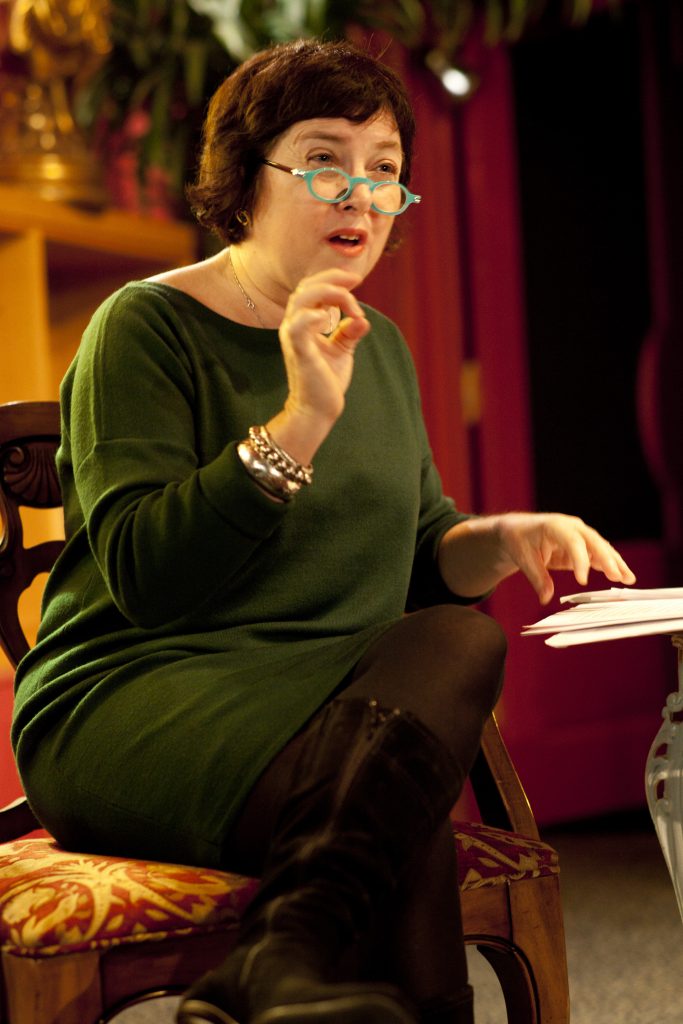
Clare Cavanagh (Northwestern University) works on nineteenth and twentieth-century Russian, Polish, and Anglo-American poetry. Her book, Lyric Poetry and Modern Politics: Russia, Poland, and the West (Yale UP) received the 2010 National Book Critics Circle Award for Criticism; was named an Outstanding Academic Book of the Year by Choice Magazine; and received the ASEEES/Orbis Book Prize for Polish Studies (2010). She is an Associate Editor of the revised Princeton Encyclopedia of Poetry & Poetics (2012). She is currently working on an authorized biography of the Nobel Prize-winning poet Czesław Miłosz (under contract, Farrar, Straus, and Giroux).
She is an acclaimed translator of contemporary Polish poetry. Her version of Adam Zagajewski’s Asymmetry (2018) received the Harold Langdon Prize for Translation from the Academy of American Poets, and was a finalist for the National Book Critics Circle Award in Poetry. The New York Times Book Review noted in a review of Nobel Laureate Wisława Szymborska’s Map: Collected and Final Poems (2015): “If there were a Nobel-like prize for translators, Szymborska’s translators Stanislaw Baranczak and Clare Cavanagh would have been awarded it at once.”
Her translation of Wisława Szymborska’s How to Start Writing (and When to Stop): Advice for Writers just came out from New Directions in October 2021.
Current translation projects include: Adam Zagajewski, Real Life (Farrar, Straus, Giroux); editor and translator, Adam Zagajewski, Collected Poems (Farrar, Straus, Giroux); editor and translator, Anna Kamieńska, A Nest of Silence: Notebooks (Yale UP); co-translator, with Alissa Valles and Michał Rusinek, Miron Białoszewski, Oho: Selected Poetry and Prose (New York Review of Books Classics).
Cavanagh’s honors include: election to the American Academy of Arts and Sciences; American Academy of Arts and Letters Award in Literature; the National Book Critics Circle Award for Criticism; the Harold Langdon Award for Translation, Academy of American Poetry; the William Riley Parker Prize of the Modern Language Association; the ZAIKS (Polish Writers’ Union) Prize for contributions to Polish literature in translation; the AATSEEL Prize for Outstanding Scholarly Book in Slavic Literatures; the Ilchester Lecture in Slavonic Literatures, Oxford University; the John Frederick Nims Memorial Prize in Translation; a citation from the Swedish Academy for her translations, with Stanisław Barańczak, of Szymborska; the Katharine Washburne Memorial Lecture in Translation; the PEN/Book-of-the Month Club Prize for Outstanding Literary Translation; and the AATSEEL Award for Outstanding Translation from a Slavic Language.
She has received fellowships from the National Endowment for the Humanities, the John Simon Guggenheim Memorial Foundation, the Social Science Research Council, the American Council of Learned Societies, and The Whiting Foundation. Cavanagh’s essays and translations have appeared in the Times Literary Supplement, The New York Times Book Review, The New Republic, The New Yorker, The New York Review of Books, Bookforum, Partisan Review, Common Knowledge, Poetry, Literary Imagination and other periodicals. Her work has been translated into Russian, Polish, Hungarian, French, Dutch, Japanese, and Chinese.
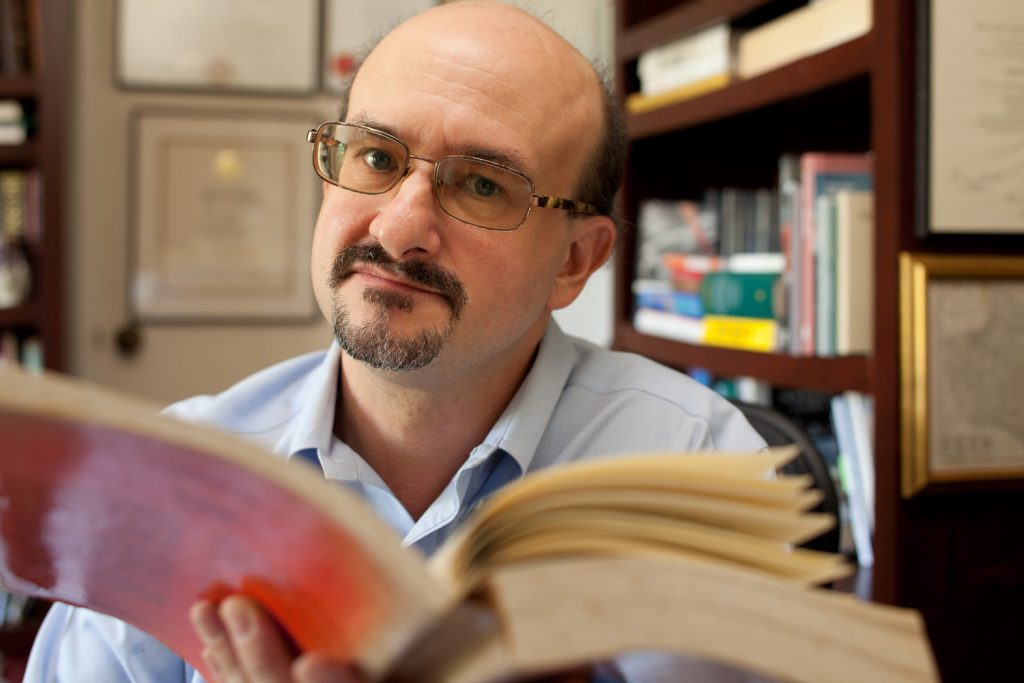
David A. Goldfarb is an independent scholar of Polish literature and literary theory, a literary translator from Polish to English, and a liaison for Polish authors to US publishers. In 2018 he translated feature articles and interviews from Wysokie Obcasy—the weekly women’s supplement to Poland’s main independent daily paper Gazeta Wyborcza—for Newsmavens.com, a pan-European women’s news portal. From mid-2010 to the end of 2013, he was Curator of Literature and Humanities Programming at the Polish Cultural Institute New York, a diplomatic mission of the Ministry of Foreign Affairs of the Republic of Poland. Prior to that he served as Assistant Professor of Slavic Literatures and Comparative Literature at Barnard College, Columbia University.
He holds a doctorate in Comparative Literature from the Graduate Center of the City University of New York as well as an M.A. in Slavic Languages and Literatures from the University of Toronto, and a B.A. in Philosophy from Cornell University and Deep Springs College. He has published articles on Bruno Schulz, Zbigniew Herbert, Stanisław Ignacy Witkiewicz, Mikhail Lermontov, and East European cinema in such journals as East European Politics and Societies, Indiana Slavic Studies, Philosophy and Literature, Prooftexts, The Polish Review, Slavic and East European Performance, and Jewish Quarterly, and he has published book chapters on Jozef Wittlin, Witold Gombrowicz, and Nikolai Gogol and Giuseppe Arcimboldo. He has written the introduction and notes for Tolstoy’s “The Death of Ivan Ilych” and Other Stories and Turgenev’s Fathers and Sons for the Barnes and Noble Classics series, and for the Penguin Classics edition of the The Street of Crocodiles and Other Stories by Bruno Schulz.
Bartek Remisko, Executive Producer
David A. Goldfarb, Host & Producer
Natalia Iyudin, Producer
This project is part of 21-anniversary celebration of Polish Cultural Institute New York.
Partners:
